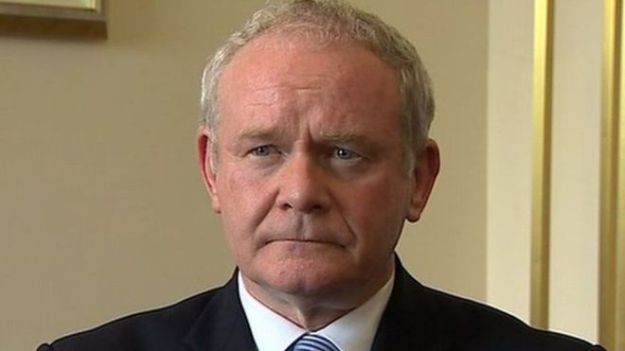“The Journey,” a fictional “imagining” of the real-life partnership between unionist firebrand Dr. Ian Paisley and former IRA man Martin McGuinness, recently debuted in Washington, D.C., as part of its wider U.S. release.
The movie isn’t as awful as early reviews suggested last fall, though there is merit to that criticism. It’s worth seeing for those who follow Northern Ireland politics. The long, twisted history of the Troubles, and the actors’ thick accents, are probably too much for more casual viewers.
A line near the end of Colin Bateman’s screenplay caught my attention and could prove to be prescient in the coming weeks. It is spoken by McGuinness (Colm Meaney) to Paisely (Timothy Spall) as they are about to agree on the power-sharing deal that resulted in the 2007 Northern Ireland Assembly:
This is our only opportunity to build something that will last, at least for our lifetime.
The real-life duo got the Assembly off the ground and developed such a close working relationship that they become known as the chuckle brothers. Peace and progress flourished in Northern Ireland. But Paisley died in September 2014, and McGuinness died in March.
Now, the suspended Belfast Assembly is facing a 29 June deadline to reorganize, or the north could return to direct rule from Westminster. This matter is complicated by the Paisley-founded, pro-unionist DUP entering a Tory coalition to control the London Parliament, which will put Irish republicans on the defensive. This comes as the U.K. also begins to negotiate its exit from the European Union–Brexit–which threatens the return of a “hard border” between the north and the Republic.
At the same time, the annual Orange Order marching season, in which Protestants celebrate a 1690 military victory over Catholics, is getting underway and approaching its 12 July peak. The season always raises tensions between the two cultural and political communities in the north.
What could possibly go wrong?



